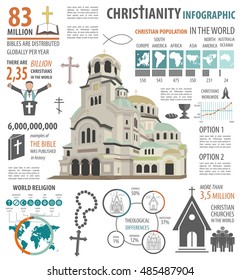Explore The Compelling Makeover Of Catholic Schools And Their Significant Impact On Education And Learning-- Might Their Practices Open The Possibility For Future Understanding?
Explore The Compelling Makeover Of Catholic Schools And Their Significant Impact On Education And Learning-- Might Their Practices Open The Possibility For Future Understanding?
Blog Article
Material Author-McPherson Howe
When you take into consideration the history of education and learning, Catholic institutions stand out for their deep-rooted practices and enduring impact. These establishments started as a means to instill faith and worths, but they've adjusted incredibly over centuries. Today, they play a critical function fit not just scholastic success yet also moral integrity. What's interesting is just how they've handled to prosper amidst altering social landscapes, questioning concerning their future importance and effect.
The Origins of Catholic Education: A Historic Perspective
Catholic education traces its roots back over 1,500 years, when very early Christian neighborhoods recognized the demand for structured knowing. You'll find that these neighborhoods aimed to hand down their faith and worths with education and learning.
Monasteries and cathedral schools ended up being facilities of learning, nurturing both spiritual and intellectual growth. As you delve much deeper, you'll see that the educational program often consisted of viewpoint, theology, and the liberal arts, designed to create versatile people.
With time, the Church developed a lot more formal establishments, ensuring that education and learning continued to be easily accessible to all. The dedication to training ethical values and cultivating a feeling of community has actually lingered through the centuries, forming the educational landscape and influencing numerous lives worldwide.
This long-lasting heritage remains to influence Catholic education today.
The Evolution of Catholic Colleges Via Social Contexts
As societies progressed, so did the function of Catholic institutions, adapting to the cultural contexts in which they existed. In the very early years, these establishments concentrated mostly on religious instruction, yet as areas branched out, they began to incorporate neighborhood languages, personalizeds, and academic needs.
https://graphics.reuters.com/USA-ELECTION/ELECTORAL-COLLEGE/qzjpqaeqapx/ would certainly observe that Catholic colleges frequently came to be centers for social cohesion, cultivating a feeling of belonging amongst trainees from different histories. In lots of regions, they dealt with social issues, such as hardship and discrimination, by supplying available education and learning for all.
As you explore different cultures, you'll see just how Catholic schools have actually shifted their educational program and teaching approaches, reflecting the worths and challenges of their atmospheres while holding to their fundamental goal of faith and academic quality.
The Modern Role and Effect of Catholic Schools in Society
In today's globe, Catholic institutions play a vital role in shaping not simply the instructional landscape, but additionally the more comprehensive area.
You'll discover that these establishments highlight values like respect, compassion, and social justice, promoting well-rounded individuals who add positively to society. By focusing on read what he said and ethical development, Catholic institutions prepare trainees for future challenges, nurturing critical thinking and leadership abilities.
They commonly offer diverse populations, bridging voids in accessibility to top quality education. Furthermore, you might observe their commitment to solution, encouraging trainees to participate in neighborhood outreach and volunteer job.
This blend of education and learning and ethical advice makes Catholic colleges a significant force, cultivating responsible people who can impact their areas for the better.
Verdict
To conclude, Catholic colleges have an abundant background that's shaped their enduring influence on culture. You've seen how they've adjusted to different cultural contexts while maintaining a dedication to confidence, worths, and scholastic excellence. Today, they remain to play an important duty in fostering area, promoting social justice, and nurturing responsible citizens. As you reflect on their legacy, it's clear that Catholic institutions stay an effective force for favorable modification in the world.
